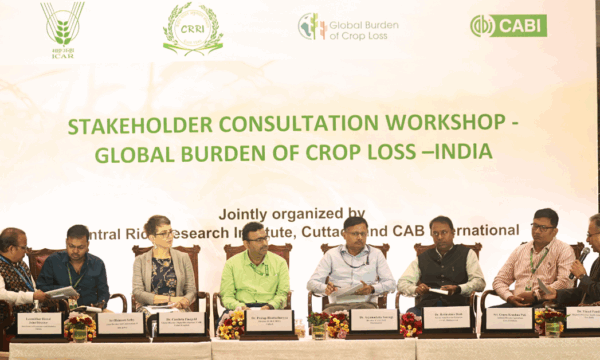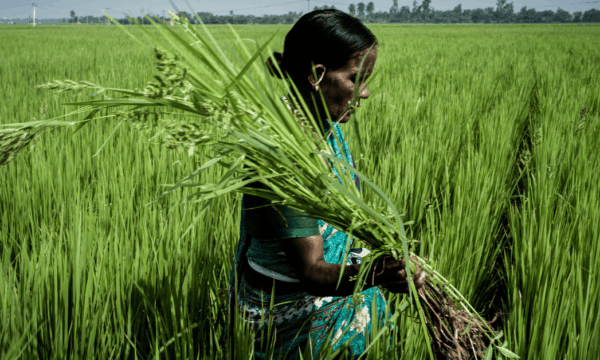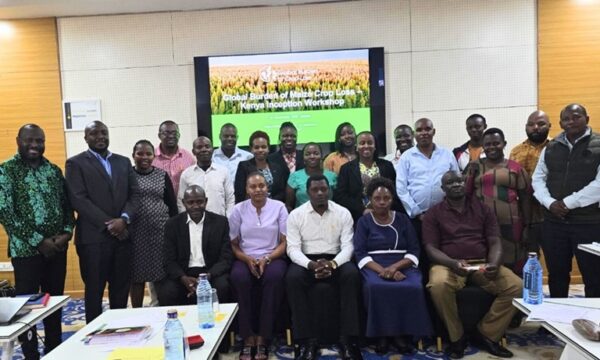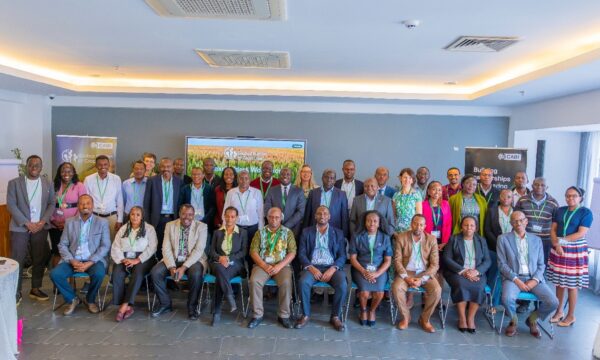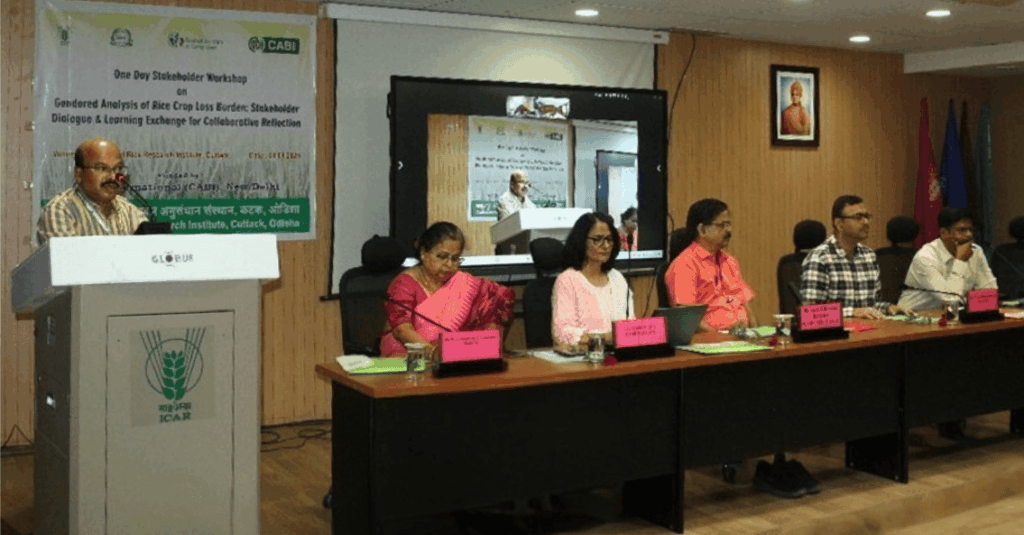
Why do men, women and youth experience crop loss differently? That question took centre stage at a stakeholder workshop in India, organized by the Central Rice Research Institute (CRRI) and CABI’s Global Burden of Crop Loss.
Crop loss remains a pressing global challenge, with up to 40% of crops lost before harvest each year due to pests, plant diseases, and climate-related stresses.
CABI’s Global Burden of Crop Loss project, in collaboration with India’s Central Rice Research Institute, convened a stakeholder workshop in Cuttack, Odisha state, to explore the often-overlooked socioeconomic impact of rice crop loss. The event, titled “Gendered Analysis of Rice Crop Loss Burden: Dialogue & Learning Exchange for Collaborative Reflection,” brought together researchers, policymakers, farmers, and development practitioners for dialogue and shared learning.
Participants explored how crop loss affects different groups and strategies to build resilience in rice farming systems.
Dr G.A.K. Kumar, Director at CRRI, said: “The impact of crop loss cuts into livelihoods, food security, nutrition, education and health. The problem affects people in different ways. Women, men, and younger farmers adapt differently depending on their roles and access to resources.”
“Understanding crop loss from a gender perspective will help create solid foundations for resilient agriculture and inclusive programmes and policies,” said Dr Vinod Pandit, Regional Director, South Asia, CABI. “Therefore, it is imperative that we shift from gender-neutral frameworks to gender-intentional action in research and extension to tackle crop loss and food insecurity.”
Dr Sanghmitra Samantaray, Head of Crop Improvement Division, CRRI, added: “We wanted to gain a better understanding of the gendered socioeconomic impact of crop loss. This is why we convened the workshop with CABI.”
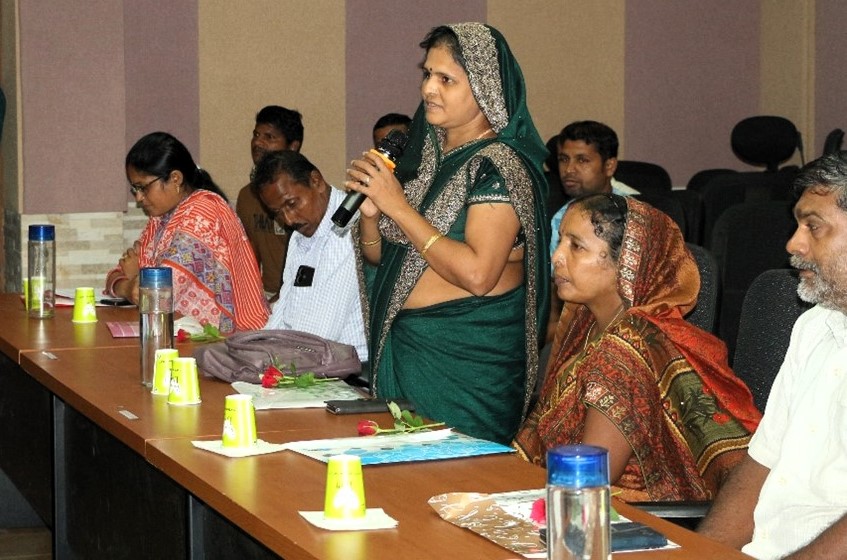
The workshop gathered over 75 stakeholders from organizations such as M. S. Swaminathan Research Foundation, Central Institute for Women on Agriculture, Indian Institute of Water Management, Krishi Vigyan Kendra, plus men and women farmers.
“This workshop is about listening and learning,” said Kavita Mishra, a gender and inclusion expert at CABI. “By understanding how crop loss is experienced differently, we can build fairer, more sustainable farming systems that benefit livelihoods of small and marginal farmers.”
Workshop participants discussed how extension workers and farmers have coped with pests, diseases and climate shocks in rice in Odisha. They also delved into the knock-on effects on household welfare and community resilience, and listened to individual case studies of farmers in attendance.
By putting gender at the heart of the conversation, CABI and CRRI hope the workshop will spark collaboration and lead to practical solutions that reduce losses and ensure farming systems benefit everyone equitably.
Speaking on the contribution of the Global Burden of Crop Loss in India, Arun Jadhav, Senior Data Architect CABI, commented: “GBCL is about understanding and reducing crop loss. We want to show the gap between what’s possible and what farmers actually harvest, while ensuring both men and women farmers benefit from better yields and resilience.”
Global Burden of Crop Loss is a project led by CABI and supported by funding from UK International Development and Gates Foundation.
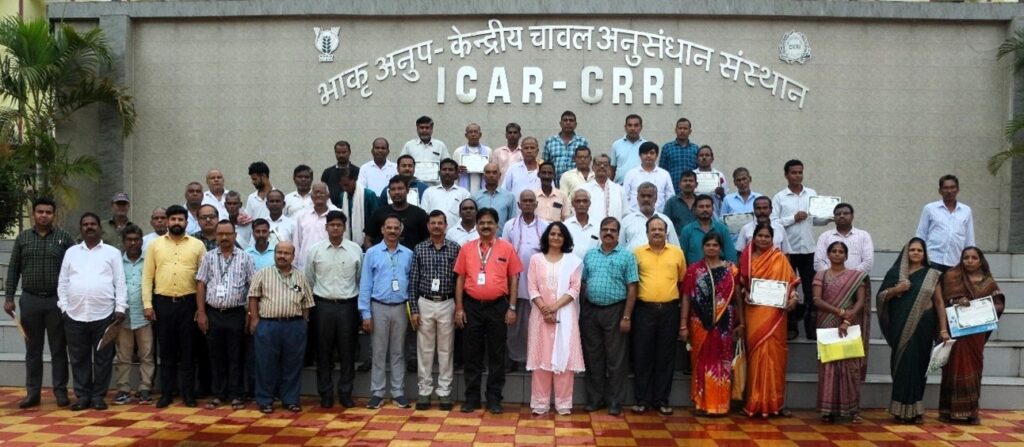
Further information
Main image: Dr Biswajit Mondal, Principal Scientist from the CRRI, addressed participants at a workshop on the gendered impact of crop loss in Odisha, India
Relevant stories
Every kilogram counts: Tackling crop loss in Kenya and Ethiopia with data-driven action
Related News & Blogs
Highlights from 2025: Most read blogs
As 2025 draws to a close, we’ve reviewed the numbers to highlight this year’s achievements on the CABI Blog, from pest risk reduction and innovative agricultural initiatives to addressing crop loss and earning global recognition. Revisit this year’s to…
16 December 2025


